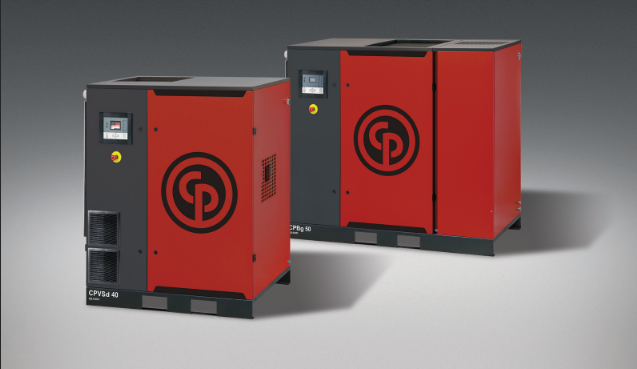Compressed air is a crucial component in many industrial and commercial applications. Whether you run a manufacturing facility, a workshop, or any business relying on pneumatic tools, the quality of your compressed air can make or break your operations. One of the biggest challenges in maintaining high-quality compressed air is controlling moisture. That’s where compressor dryers come in. Compressor dryers remove vapor from compressed air to prevent corrosion, equipment damage, and product contamination.
At Summit Compression, selecting the right compressor dryer is vital for maintaining your air system’s efficiency and longevity. With several types of compressor dryers available, choosing the best one for your needs can feel overwhelming. This blog will guide you through the essential factors to consider, helping you make an informed decision that keeps your system running smoothly.
Why Is a Compressor Dryer Important?
Before diving into how to choose the right dryer, it’s essential to understand why it’s necessary. Compressed air contains moisture because air naturally holds water vapor. When air is compressed, the temperature rises and then cools down, causing the moisture to condense. This condensation can lead to several issues:
- Corrosion: Moisture causes rust and corrosion inside pipes, tanks, and equipment.
- Contamination: Water can mix with lubricants or other materials, affecting product quality.
- Equipment Damage: Moisture can cause pneumatic tools and machinery to malfunction or wear out prematurely.
- Freezing: In colder climates, moisture can freeze in lines, causing blockages.
A compressor dryer removes this moisture, ensuring your air system delivers clean, dry air, preventing costly repairs and downtime.
Types of Compressor Dryers
Several types of compressor dryers are on the market, each suited to different applications and budgets. Understanding the differences will help you narrow down your choices.
1. Refrigerated Air Dryers
Refrigerated dryers cool the compressed air to condense moisture, which is drained. They are the most common type and ideal for general industrial applications with moderate air quality requirements.
- Pros: Cost-effective, low maintenance, reliable.
- Cons: Not suitable for extremely low dew points or icy environments.
- Best for: Workshops, manufacturing plants, automotive shops.
2. Desiccant Air Dryers
Desiccant dryers absorb moisture using a drying agent (desiccant). They can achieve much lower dew points than refrigerated dryers, making them suitable for very dry air applications.
- Pros: It can reach very low dew points and is suitable for critical applications.
- Cons: Higher operating costs and regular desiccant replacement or regeneration are required.
- Best for: Pharmaceutical, food processing, electronics manufacturing.
3. Deliquescent Air Dryers
These dryers use a chemical drying agent that absorbs moisture and dissolves into a liquid, which is drained away. They are simple and have no moving parts.
- Pros: Low initial cost, no electricity required.
- Cons: Consumable drying agent needs regular replacement, and is less environmentally friendly.
- Best for: Remote locations or low-budget operations.
How to Choose the Right Compressor Dryer for Your Air System
Now that you know the main types of dryers, here are the key factors to consider when selecting the right one for your needs:
1. Understand Your Required Dew Point
The dew point is the temperature at which water vapor condenses out of the air. Different applications require different dew points. For example, general manufacturing might be fine with a dew point of 35°F, but sensitive electronics manufacturing may require a dew point as low as -40°F.
Tip: Identify the lowest dew point your system requires to prevent moisture-related issues.
2. Consider Air Flow and Capacity
Your compressor dryer must handle the volume of air your system uses, measured in cubic feet per minute (CFM). Selecting a dryer with insufficient capacity can lead to moisture problems.
Tip: Calculate your peak air flow and choose a dryer rated slightly above that capacity for safety.
3. Evaluate Operating Environment
The environment where the dryer operates affects its performance. Refrigerated dryers need ambient temperatures above freezing. Desiccant dryers handle colder environments but consume more energy.
Tip: Match the dryer type to your facility’s climate conditions.
4. Energy Efficiency and Operating Costs
Energy consumption can significantly increase operating costs. Refrigerated dryers tend to be more energy-efficient than desiccant dryers. However, despite their higher costs, desiccant dryers might be necessary for certain applications.
Tip: Factor in both upfront and long-term operational expenses.
5. Maintenance Requirements
Some dryers require more maintenance than others. Refrigerated dryers generally need less frequent maintenance, while desiccant dryers require regular desiccant replacement or regeneration.
Tip: Choose a dryer that fits your maintenance capabilities and budget.
6. Space Constraints
Consider the dryer's physical size and available space in your facility. Due to their dual-tower design, some desiccant dryers have larger footprints.
Tip: Measure your installation area and consult suppliers for a suitable model.
Final Thoughts
Choosing the right compressor dryer is essential to protecting your compressed air system and ensuring reliable operation. By understanding your dew point requirements, airflow capacity, operating environment, and maintenance capabilities, you can select a dryer that delivers optimal performance and cost-efficiency.
If you’re ready to improve your compressed air quality and extend the life of your equipment, contact Summit Compression today. Our team is here to provide expert advice and top-quality products.
The right compressor dryer can improve the reliability of your compressed air system. Trust us to help you make the right choice.
